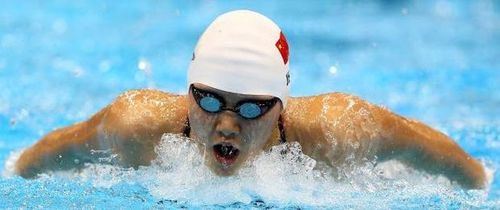Stronger, faster, better – and drugged up?
With the excitement of the Olympic Games gripping the world, you’d be forgiven for forgetting about all the work that goes on behind the scenes to make London 2012 run so smoothly.
But stories like Ye Shiwen’s record breaking swim remind us that we do need people to make sure these games are clean. As soon as Ye finished the 400m individual medley, there was outcry from the swimming coaches. How could Ye, a 16 year old girl, swim 100m faster than Ryan Lochte, a world record breaking swimmer in his own right? Of course, the first thing that came to many people’s minds was that she had been doping.
Doping is a term used to describe the use of performance enhancing drugs. In the late 60s to late 80s, the Olympic Games were rife with doping, with many of the offenses coming from communist countries such as Russia and East Germany. However, doping has been officially banned since 1968, when the use of such substances increased dramatically and resulted in some athletes having unfair advantages. Since then, anti-doping techniques and tests that scientists use have been continually improved to detect as many banned drugs as possible and help keep the games fair.
The pharmaceutical company GlaxoSmithKline is collaborating with Kings College London to carry out anti-doping tests for London 2012. Every medalist and 50% of athletes are required to provide urine and blood samples, which are then tested within a 24 hour period. The tests detect the presence of over 240 different drugs banned by the World Anti-Doping Agency (WADA). For example, urine is tested for two types of drugs known as stimulants and diuretics, which have different, enhancing functions. Stimulants, such as ephedrine and amphetamines, boost alertness, reduce tiredness and increase competitiveness and aggression, facilitating performance in almost every sport. Diuretics, alternatively, increase the amount of urine produced by the athlete, aiding weight loss (helping those in weight class sports such as weightlifting and judo). They also ‘water down’ urine, resulting in less chance of detecting other banned drugs.
Other banned substances and techniques include androgens, peptide hormones, narcotics, cannabinoids and blood doping. Blood doping is a relatively new technique that is proving popular due to how difficulty it is to detect. The practice essentially involves injecting oneself with extra blood to increase the amount of red blood cells in the body and aid respiration. Firstly, athletes remove their own blood well before an event, resulting in the body replenishing the blood supply, creating extra red blood cells to deliver oxygen to the muscles. Then, just before the event, the removed blood is transfused back to the athlete, resulting in more red blood cells, and hence, better transfer of oxygen to the muscles. When partaking in the sport, the athlete’s muscle cells can respire more efficiently and therefore performance will be enhanced. The same effect (though less extreme) can be gained by training at high altitude, where the oxygen levels are lower.
Different drugs are banned in different sports as they have differing effects on the body. For example, beta blockers are given to people suffering from irregular heartbeats, anxiety or PTSD, as they slow down one’s heart rate. They are banned in shooting and archery as they can help reduce tremors and therefore can enhance the athlete’s aiming abilities. However, they can have the opposite effect in endurance sports, by impairing athletic performance by reducing the athlete’s heart rate and oxygen supply. They are consequently legal in these events.
Ye Shiwen’s tests have come back clean, and so we can be safe in the knowledge that her medals have been well earned through sheer hard work and intense training. Already, however, four athletes have been caught using these banned substances at the 2012 games. So although we must be careful before accusing exceptional athletes of doping, we must always be aware that drugs tests are an essential part of keeping the Olympic games fair for everyone.

Comments